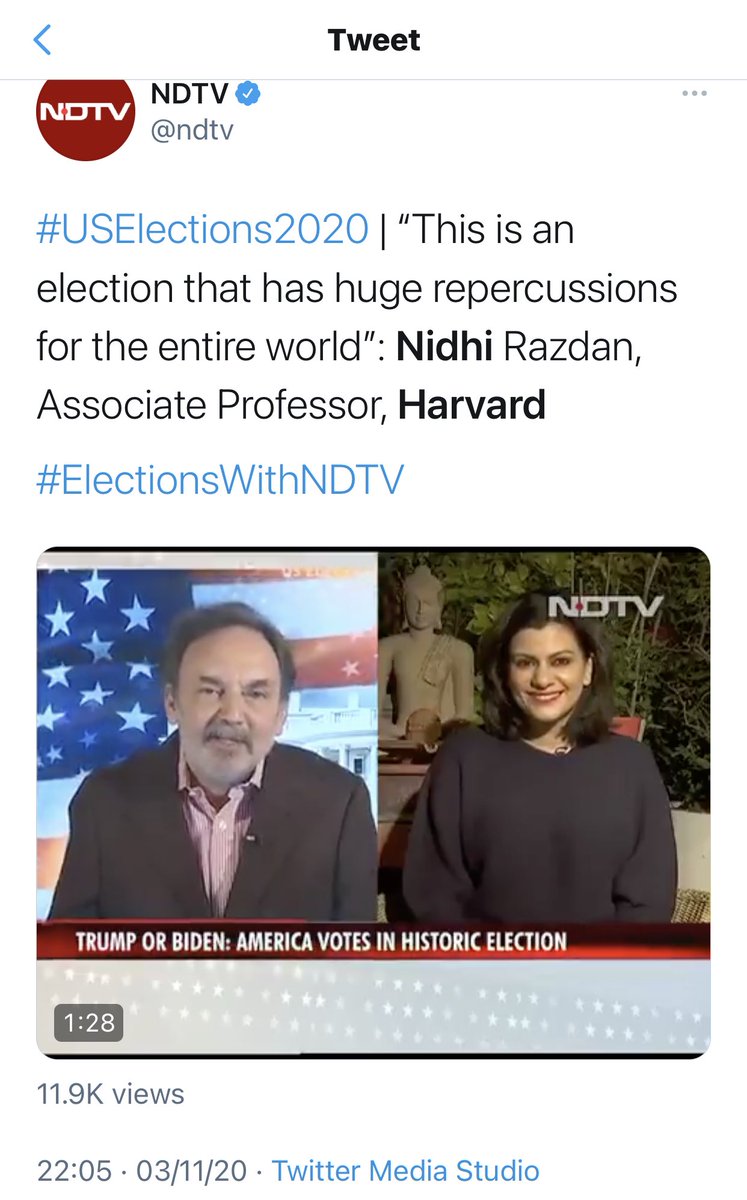
Technically the second PM.
"People forget that democracy is more natural to India than to any other country. There was democracy in India before any other country in the world ever dreamt of it...We had republics, fully, fairly elected, 2500 years ago."
"People forget that democracy is more natural to India than to any other country. There was democracy in India before any other country in the world ever dreamt of it...We had republics, fully, fairly elected, 2500 years ago."
https://twitter.com/JoeAgneya/status/1358660978183864320
The people of India have a long tradition of indigenous democracy, going back to the Mahajanapadas of antiquity to village Panchayats even today.
Democracy is not the gift of the West to an unsuited public. The public wanted democracy, but were given 'feudalism with elections'.
Democracy is not the gift of the West to an unsuited public. The public wanted democracy, but were given 'feudalism with elections'.
"It is not that India did not know what is Democracy ... There was a time when India was studded with republics, and even where there were monarchies, they were either elected or limited."
Dr Ambedkar, presenting the final draft of the Constitution, 1949
asian-voice.com/Opinion/Column…
Dr Ambedkar, presenting the final draft of the Constitution, 1949
asian-voice.com/Opinion/Column…

Democracy is a vehicle - one of many possible methods of reaching our goals, not a goal in itself.
We need to stop congratulating ourselves for being the "world's biggest democracy" in exchange for praise, and start pursuing the aspirations of the people.
Lokniti, not Rajniti.
We need to stop congratulating ourselves for being the "world's biggest democracy" in exchange for praise, and start pursuing the aspirations of the people.
Lokniti, not Rajniti.
Democracy, liberalism, secularism, or socialism as currently practised in India are not achievements for Lokshakti.
They are only an achievement for Rajshakti: the state's abstract values (and rent-seeking gatekeepers) over the socio-economic aspirations of ordinary people.
They are only an achievement for Rajshakti: the state's abstract values (and rent-seeking gatekeepers) over the socio-economic aspirations of ordinary people.
Bottom-up, indigenous democracy, placed in the hands of the people and reflecting their values, is a powerful, radical tool of decolonisation and self-respect.
We have the opposite - a top-down, colonial polity, designed for winning approval abroad, not uplifting people at home.
We have the opposite - a top-down, colonial polity, designed for winning approval abroad, not uplifting people at home.
It is very easy to use "democracy" as a stick to beat the country with, or as an excuse for all our ills.
Simplu put, we have invested democracy in the wrong places. With not enough real democracy where it matters.
A thread on Lokniti-Lokshakti reforms:
Simplu put, we have invested democracy in the wrong places. With not enough real democracy where it matters.
A thread on Lokniti-Lokshakti reforms:
https://twitter.com/ruchirsharma_1/status/1343868018225541121?s=19
• • •
Missing some Tweet in this thread? You can try to
force a refresh









